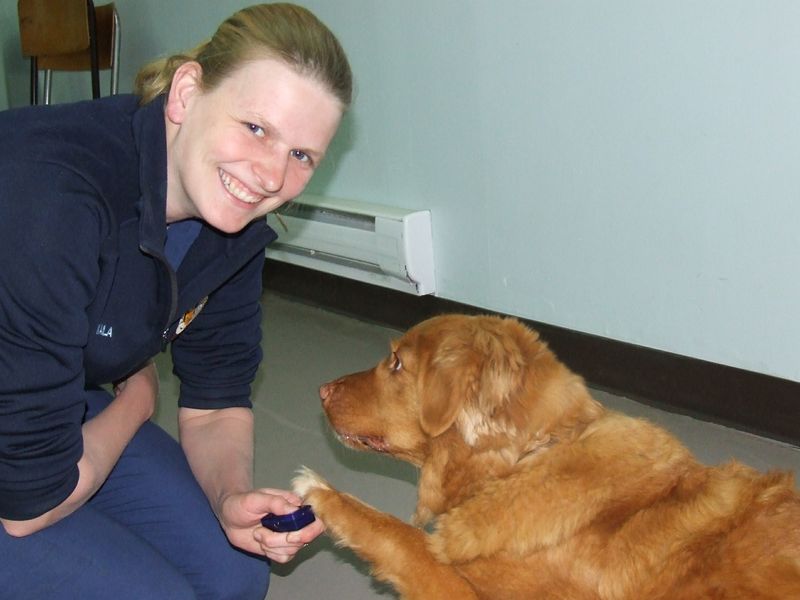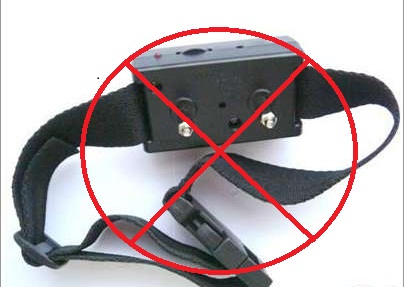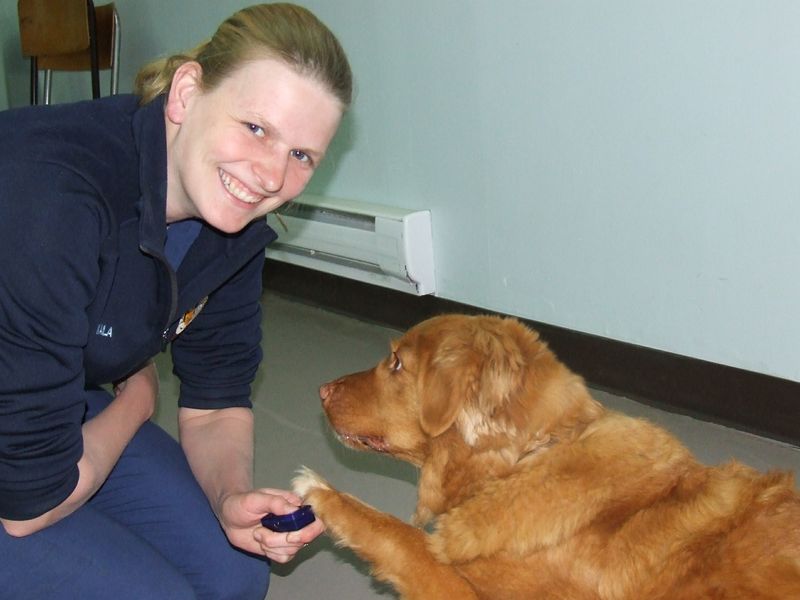
Myth Busting: TVH Style!
Courtesy of: Kaila
I would like to clear up a few myths about dog training in this blog, as I see these myths in practice far too often. Even though positive dog training techniques have become widespread, “negative” or discipline-based training using physical force has become more common. This is likely due to the increasing popularity of television shows that feature it.
There are many punishing and/or confrontational techniques used to control dogs (NONE of which we encourage or recommend) including: sharp leash corrections meant to cause discomfort; hitting or kicking the dog; applying electric shock; applying physical force to pressure a dog into a submissive down position; or the “alpha roll,” which forces the dog on its back in an apparently submissive position. There are a variety of other techniques involving shouting, threatening stares or growls, use of water sprays or water guns, or grabbing the dog by the scruff of the neck or the jowls and shaking it. How do you think these “techniques” make your dog feel? They cause fear, stress and even pain.
Fear inhibits the ability to listen and learn.
For example, take your biggest fear; is it heights, spiders, or snakes? No matter what it is, now imagine yourself in that experience, whether it is falling from the CN Tower, or being locked in a room full of spiders or snakes . . . how well do you think you could LEARN something new while you are surrounded by your fear? Chances are you aren’t going to learn anything because you are so stressed that you likely would have issues with listening and following instructions given to you – even to do something simple like write your name on a piece of paper.
Why then would we expect our dogs to be able to learn when they are in a fearful state of mind – a state of mind that we have created with one of the above listed “techniques”?
Punishment is not successful at teaching behavioral changes.
Just imagine:
You have a boss that speaks another language and you don’t understand your job requirements. Every time you make a mistake, your boss slaps you. Now add a little inconsistency: sometimes you get slapped after a behavior and sometimes you don’t, so you never know which response to expect. He also yells at you A LOT. When he tries to teach you something new and starts yelling…do you work harder or do you just shut down in fear and brace for the inevitable beating?
In times of conflict, are you the type of person that becomes very quiet and basically melts into the floor, focusing on anything but the confrontation? Perhaps instead you get angry and defensive, even yelling back? Like people, there are dogs that may fall into either category. By using physical pain, and punishment animals become unwilling to try to learn for fear of failure, pain and oncoming punishment. Some dogs shut down and go to their “happy place” while others may be pushed far enough that they lash back at you in defense.
Now let’s look at things from a positive reinforcement point of view. This is type of training that we offer and promote at Truro Vet. Not only are the dogs willing, but they are excited to show of all their behaviours when they are trying to learn something new. They don’t have ANY FEAR of failure, because there is no discipline for a “wrong answer”. Any undesired behaviours are just ignored. It is much easier to train a dog that is willing and excited to learn than to train a dog that is afraid of making a mistake.
Back to your boss. Now imagine a scenario where every time you worked a little bit harder at your job, you got a nice big bonus. Perhaps every time you politely greeted a client you got rewarded with a candy. You are likely to repeat these types of behaviours over and over – because you got positive results. Who doesn’t like to have a bit of extra cash? How about that candy reward for what you might think is a “simple” task – I LOVE candy (especially Skittles)! You’ll likely also try to find out other ways that you can earn candy and bonuses, making you more motivated. The same thing happens with our dogs; they are so highly motivated by the rewards we have to offer them that they work harder to get their next reward.
If you have questions about various training techniques, be sure to contact us at 893-2341. We would love to discuss ways that you can build your bond with your dog in a loving, positive manner.



0 Comments